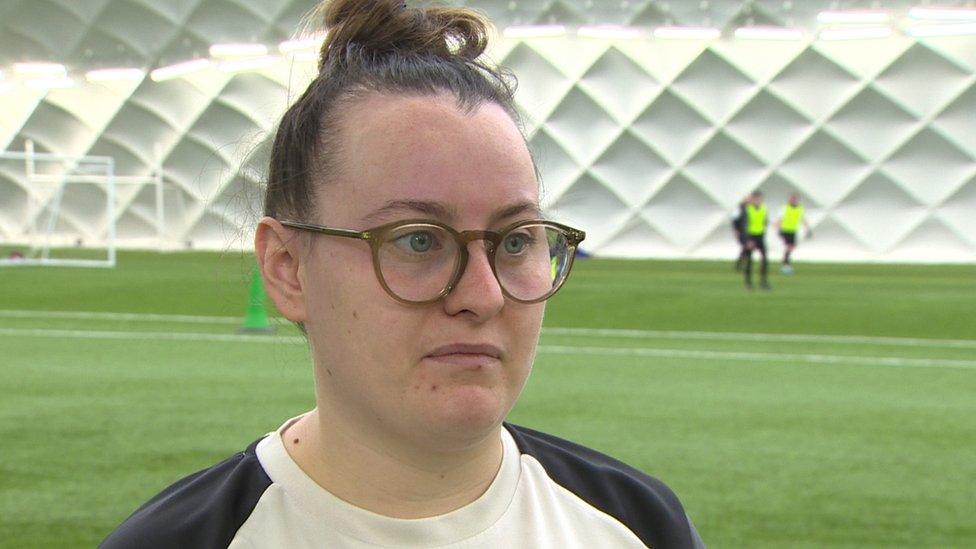Good Friday Agreement: Peace deal still example to the world - Tony Blair
- Published
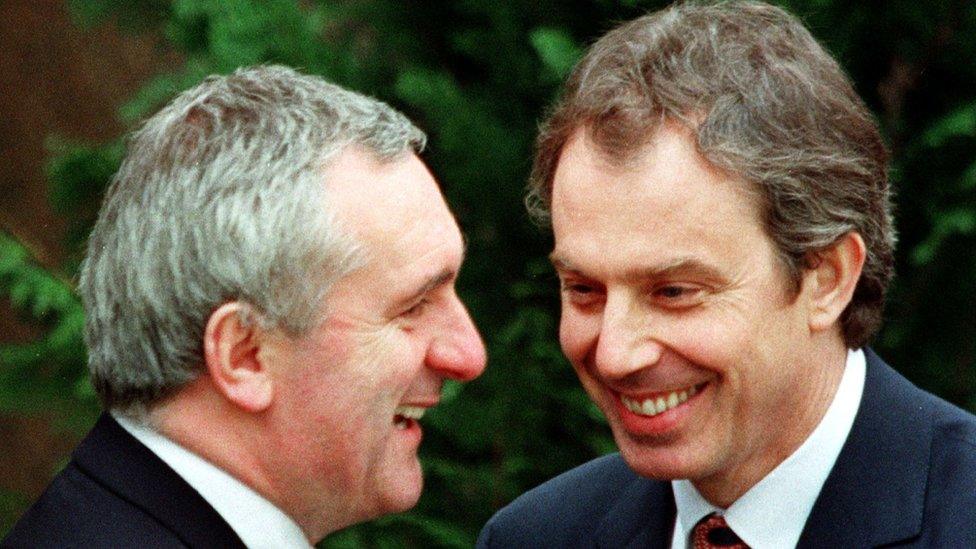
Bertie Ahern and Tony Blair announcing a deal had been reached on 10 April 1998
The national leaders who brokered the Good Friday Agreement in Northern Ireland have said the peace deal remains an example to the world, 25 years after it was signed.
"You had leaders who were prepared even at personal political risk to face down the recalcitrant elements in their own parties and move forwards," said former Prime Minister Tony Blair.
"That's why it's a lesson for peace processes everywhere," he added
He was speaking in a new BBC programme.
"Troubles and Peace" is a documentary for BBC News on iPlayer, which explores the peace process.
"Northern Ireland is probably the only example I can think of - in the modern world - of a peace process that really did come to fruition," Mr Blair told the programme.
The Good Friday Agreement - which is also called the Belfast Agreement- was announced on 10 April 1998, after days and nights of intense negotiations.
It was backed by most of the political parties in Northern Ireland - including those linked to paramilitary organisations.
'Life is different for us' - two young women reflect on 25 years of the Northern Ireland peace process
The deal was designed to bring an end 30 years of violent conflict in Northern Ireland known as the Troubles, during which more than 3,500 people were killed.
Mr Blair and his Irish counterpart, the Taoiseach Bertie Ahern, were personally present at the talks during the final week.
'Talk to people who control the violence'
Mr Ahern said he believed that if the negotiations ended in failure, a return to violence was "inevitable" and "certain to continue into the dim and distant future".
He said the reason why previous peace efforts in Northern Ireland had broken down "because they weren't inclusive processes" in that they had left out parties which represented paramilitaries.
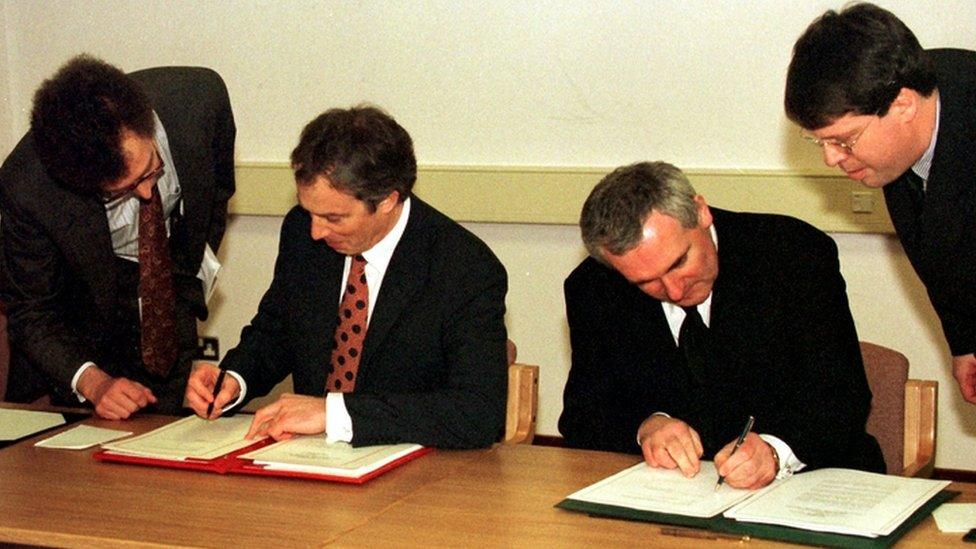
The prime minister at the time, Tony Blair, and then taoiseach (Irish Prime Minister) Bertie Ahern sign the Good Friday Agreement
"You have to talk to the extremes. It's not easy for legitimate, democratic, sovereign governments to do that.
"I went into the mountains in the Basque country to talk to [armed separatist group] ETA, and I went into the mountains in Papua New Guinea, for talks about the Bouganville conflict.
"It's not always where you want to be, but if you want to resolve something, you have to talk to people who actually control the violence."
Constitutional status of Northern Ireland
Mr Blair said he had expected that there would be more opposition to the Agreement among unionists than nationalists.
"Unionists have the feeling - completely understandably, given the history - that the British government is always poised to sell them out," he said.
"When unionists asked me what they had got out of the Agreement, I used to say they'd got the union."
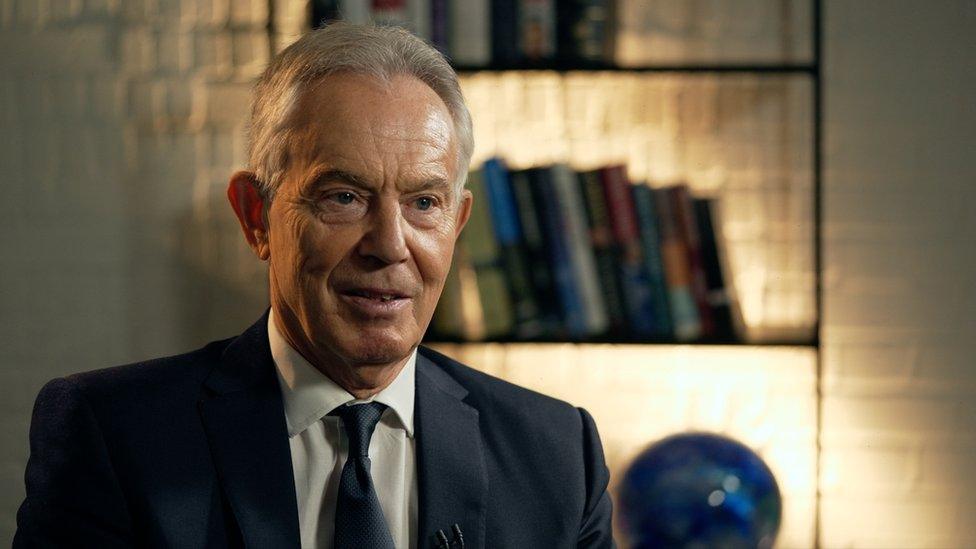
Tony Blair says Northern Ireland is a lesson for peace processes everywhere
He pointed to "consent principle" - that Northern Ireland would remain in the UK as long as most of its people wanted it to - and that prior to the Agreement "it was never accepted by republicanism".
Asked about calls to review the Agreement, Mr Blair said: "The most important thing is that we keep what is always the essential principle, which is that the constitutional status of Northern Ireland is determined by people there, in a democratic way.
"But of course, things will evolve over time."
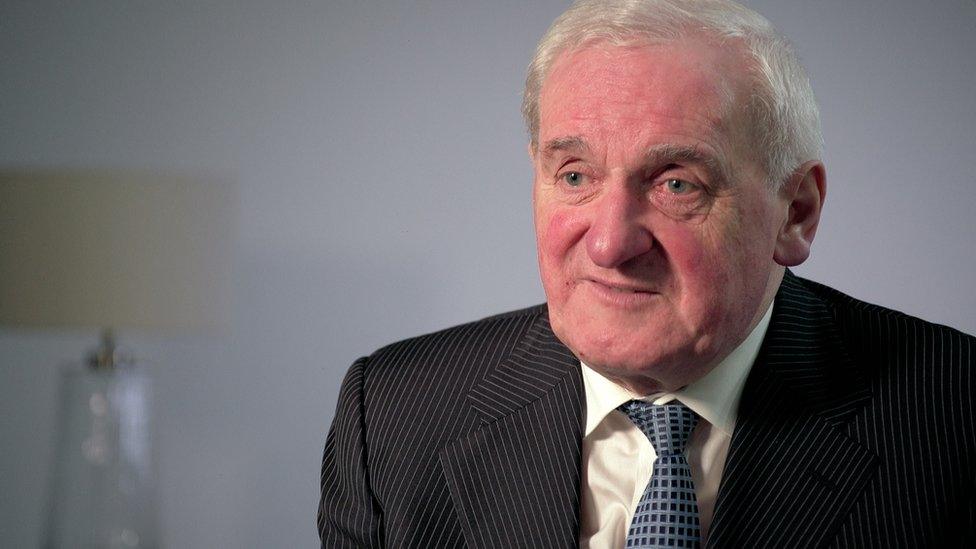
Bertie Ahern says it is now time for another generation of politicians to move forwards
Mr Ahern said the legacy of the Agreement was "we got peace and we stopped the killing".
"Now that we've had our day, it's for another generation of politicians to move forwards," he added.
Troubles and Peace is available to watch on the BBC iPlayer.
You can listen to The Good Friday Agreement - The Good Friday Agreement - a reunion on BBC Sounds.
- Published26 March 2023

- Published4 April 2023
